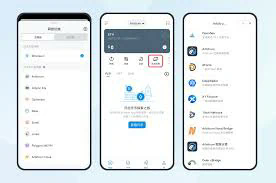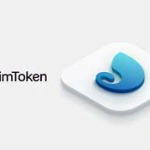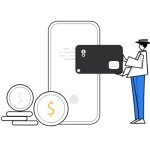# ImToken安全性分析
在数字货币和区块链技术迅速发展的今天,数字钱包的安全性成为了用户最为关注的话题之一。ImToken作为一款广泛使用的数字钱包,凭借其用户友好的界面和强大的功能,在市场上获得了较高的评价。然而,关于ImToken的安全性,对于许多用户仍然存在疑问。本文将针对ImToken的安全性进行深入分析,并探讨其背后的技术原理和安全措施。
## ImToken的基本介绍
ImToken成立于2016年,是一款多链数字钱包,支持以太坊及其ERC20代币、比特币、EOS等多个主流公链资产的管理。相比于传统的银行账户,数字钱包给用户提供了更高的资产控制权。用户可以通过私钥直接掌控自己的数字资产,避免了中心化交易所可能出现的资产风险和交易限制。
然而,数字钱包的去中心化特性也带来了新的安全风险。例如,用户需自行管理私钥,若私钥丢失或被盗,用户的资产将面临无法恢复的风险。针对这些风险,ImToken实现了一系列安全措施。
## 私钥管理与安全性
ImToken应用中,私钥是用户数字资产的“钥匙”。私钥的安全性直接决定了用户资产的安全。因此,ImToken采用了多种技术手段确保私钥的安全性。

首先,ImToken采用了本地生成私钥的方式,而不是将私钥存储在服务器上。这种方式有效避免了中心化风险,并且用户即使在没有网络的情况下也能安全地管理自己的资产。
其次,ImToken使用了硬件加密技术来保护用户的私钥。在用户的设备中,私钥会进行加密存储,外部恶意软件无法轻易获取。此外,ImToken还支持多重签名和指纹识别功能,为用户提供了额外的安全保障。
## 交易安全性分析
在ImToken使用过程中,用户频繁进行资产交易,因此交易过程的安全性也至关重要。ImToken在交易安全方面采取了多项举措,以确保用户的交易不被篡改或盗用。
首先,ImToken支持对交易进行数字签名,只有拥有相关私钥的用户才能发起交易。这一机制有效防止了未授权交易的发生。
其次,ImToken的交易记录均基于区块链技术,无法被篡改。每一次交易都会在区块链上留下不可更改的记录,确保交易的透明性和可信度。
最后,ImToken还具备异常交易提醒功能,当检测到用户账户发生异常行为时,会第一时间通过推送通知用户,降低了用户资产被盗的风险。
## 恶意软件与安全防护
尽管ImToken在安全性方面做了很多努力,但用户在使用数字钱包时仍需提高警惕,防范恶意软件的攻击。许多网络攻击者会利用恶意软件来窃取用户的私钥和交易信息。因此,用户在使用ImToken时应注意以下几点。
首先,用户应尽量在官方渠道下载ImToken应用,避免从不明来源下载。这是确保应用安全的第一步。
其次,用户应定期更新应用程序,修复可能存在的安全漏洞。ImToken团队会定期发布更新,提高安全性和用户体验。
最后,用户还可以使用防病毒软件和防火墙等安全工具,增强自身设备的安全防护能力。
## 社区与客户支持
ImToken在安全性方面的努力不仅体现在技术层面,也体现在其对用户的支持与教育上。ImToken建立了活跃的用户社区,定期举办线上线下活动,向用户普及数字资产安全知识。
此外,ImToken还提供专业的客户支持,用户如在使用过程中遇到安全问题,可以通过官方客服渠道寻求帮助。ImToken团队会快速响应用户的需求,并给予相应的解决方案,以最大程度保障用户的资产安全。
## 多重备份策略
在资产安全的管理中,备份是一个非常重要的环节。ImToken为用户提供了多种备份方式,以防止用户在意外情况下丢失私钥或助记词。
用户可以选择将助记词保存在安全的地方,例如纸质记录或密码管理工具等。此外,ImToken还支持导出私钥功能,用户可以将私钥备份到其他安全的设备上。
通过这些备份策略,即使在设备丢失或损坏的情况下,用户依旧可以通过备份恢复自己的数字资产。
## 法规与合规性
随着数字货币的快速发展,全球各国的监管政策也在不断变化。ImToken在合规性方面积极响应各国法规,努力提升自身在行业中的信誉与透明度。
目前,ImToken已经获得了全球范围内多项合规认证。在数据隐私和反洗钱(AML)方面,ImToken也积极配合监管机构,确保用户信息的安全。
通过合规性措施,ImToken不仅保护了用户的资产安全,也为其未来的发展奠定了良好的基础。
## 结语
综上所述,ImToken在安全性方面采取了多项措施,以保障用户的数字资产安全。虽然数字钱包的去中心化特性使其面临一定的安全风险,但通过私钥管理、交易保护、恶意软件防护及客户支持等多方面的努力,ImToken在行业中建立了良好的口碑。
用户在使用ImToken时应保持警惕,定期更新和备份私钥,并加强安全意识,从而最大程度地保护自身资产安全。在不断发展的数字货币生态中,ImToken无疑是一个值得信赖的数字钱包选择。



